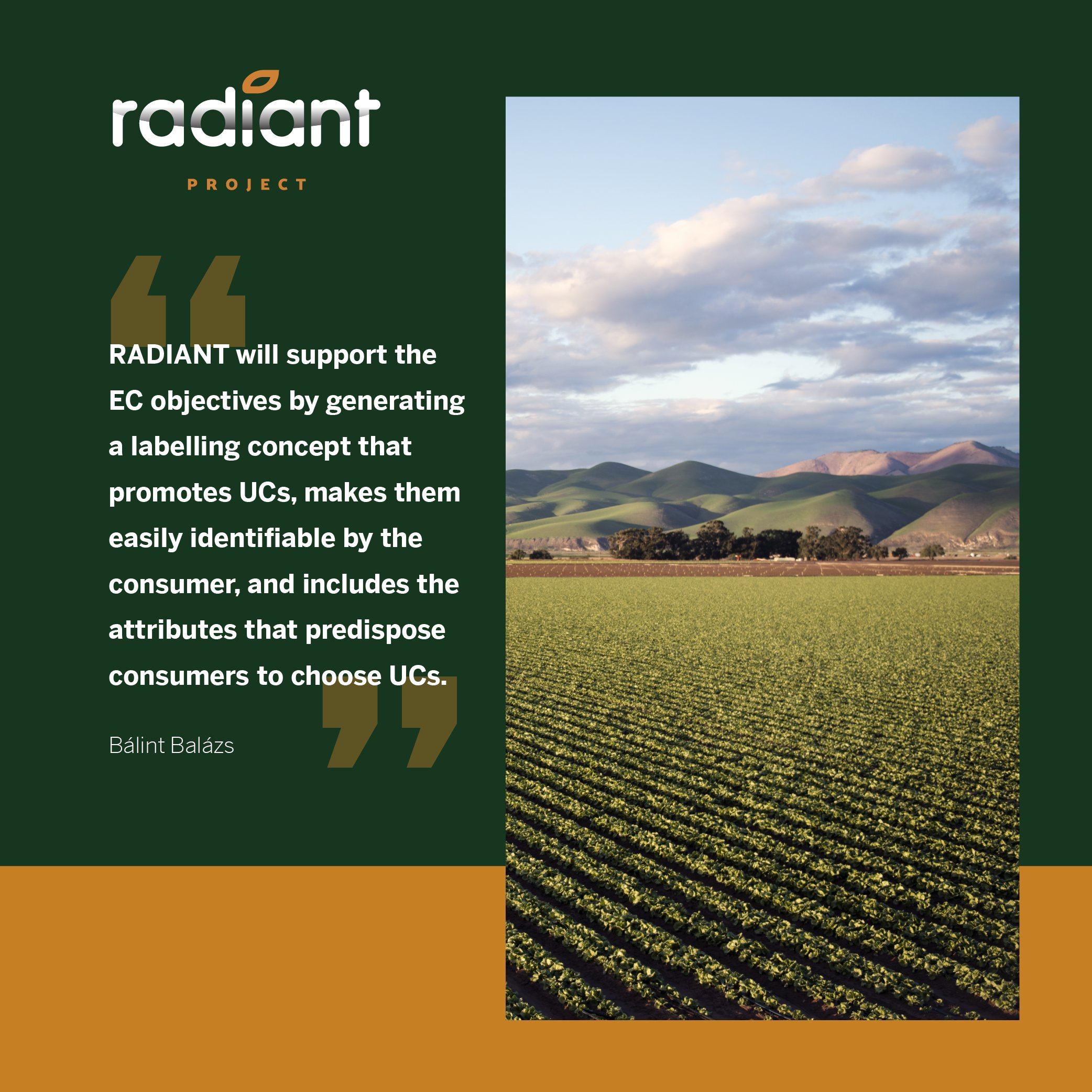RADIANT: realizing dynamic value chains with underutilized crops is a new European project coordinated by Catholic University of Portugal in Porto (Portugal), financed by Horizon 2020, the European Community Framework Program for Research and Innovation. The objective is to develop solutions and tools that will promote agrobiodiversity, combating the agricultural paradigm of monoculture and industrialized agriculture. “Radiant will support the European Commission’s objectives by generating a labeling concept that promotes underutilized crops, makes them easily identifiable by the consumer, and includes the attributes that predispose consumers to choose underutilized crops” – says Bálint Balázs, senior researcher of ESSRG.
ESSRG, partner of the RADIANT project, starts a cooperative research on several pilot studies to identify and help stakeholders design incentives that promote the broader use of underutilized crops in value chains.
It is with the purpose of increasing the diversity of cultures, reflected in the food consumed by citizens, that RADIANT proposes, through an approach based on the “Theory of Change”, to create tools that preserve the agrobiodiversity, making it possible to diversify the availability of locally produced food. By promoting underutilized crops, which include a mixture of under-produced species such as legumes, or older and “forgotten” varieties of more common crops such as wheat, maize, barley or tomatoes, RADIANT’s ambition is to reduce the ‘production gap’ between the most popular and underutilized crops, and the ‘nutritional gap’ – between the most consumed foods, and the foods most necessary for a healthy diet. In addition to these objectives, it is also intended to guarantee fair economic and social development for all stakeholders in the value chains.
RADIANT Project in numbers
The European project “RADIANT – Realizing Dynamic Value Chains with Underutilized Crops” involves 29 entities from 12 countries – Portugal, Slovenia, United Kingdom, Hungary, Spain, Greece, Italy, Germany, Ireland, Bulgaria, Netherlands, Cyprus – and also has the Food and Agriculture Organization (FAO) of the United Nations as a partner.
RADIANT is intended to demonstrate successful transitions to inclusive agrobiodiversity systems; carry out improvement programs so that underdeveloped crops are more competitive; test the best agricultural practices that maximize their sustainable production; expand its environmental, social and nutritional recognition, through the characterization of its multiple benefits; offer solutions for their integration into profitable value chains, based on political, social and governance innovations; empower society to integrate these foods into their diets.
With a duration of 4 years and funding over 5.9 million euros through H2020, the project has 20 pilot farms, the so-called “AURORA farms”, which cover different agro-ecologies across Europe, and where good practices will be tested and demonstrated. Furthermore, 45 participatory farmers will also be recruited to facilitate the integration of these underutilized crops, carrying out an adaptive management of agrobiodiversity using tools developed by the project itself.
If you wish to know more or to get in touch with us, please visit the Project’s website: https://www.radiantproject.eu/
